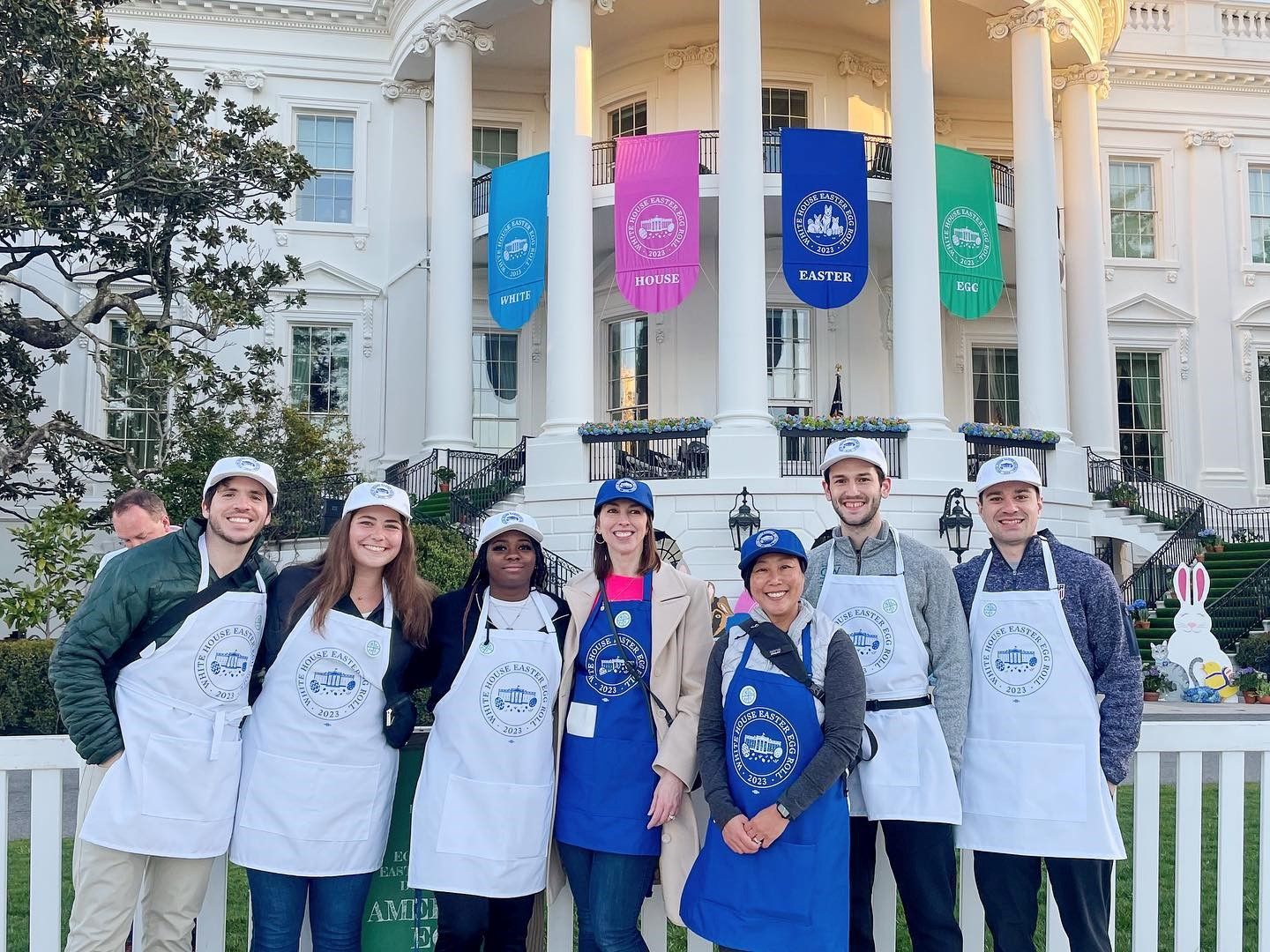The George Washington University (GW) Doctor of Physical Therapy (DPT) program sits a mere four blocks from the White House, however, it is not often that DPT students venture onto White House grounds. That is, until this year’s inaugural accessibility hours at the annual White House Easter Egg Roll.
For the first time in history, the White House hosted accessibility hours during the Easter egg roll events, dedicated to families with members who need extra assistance with physical or mental disabilities. Students and staff from GW’s DPT, Occupational Therapy, and Speech Language Pathology programs applied to volunteer during the accessibility hours. According to a White House special advisor, the support from GW’s army of volunteers helped make the inaugural accessibility session a success, marking the first major change in a 145-year-old tradition.
Third-year DPT student, Daniela Zapata, enjoyed her interactions with families throughout the day. “The families looked grateful, and the tasks we were given were able to be easily learned.” From 7-9 am, GW members guided hundreds of families through different sensory-friendly activities, providing extra cognitive or physical support as needed during the accessibility session. “My biggest takeaway was that even small acts like cheering kids on and telling people where to find the restroom are helpful,” Zapata said.
GW community members donned special disability name tags, and their presence seemed to help families have confidence to participate in the festivities. Large events like the Easter egg roll are often stressful and difficult for families with disabled children to navigate. Emily Madsen, a second-year DPT student, said, “Everyone wants the opportunity for their children to participate in an event with the same experience as other kids. Having inclusive events like this one allows children and families to have that opportunity.”
In addition to GW members, the event was made possible by thousands of volunteers from across the country who helped the nearly 40,500 visitors that visited the White House from 7am – 7pm. The egg roll has been a springtime tradition since 1878, making it one of the oldest annual events in White House history.
After the event, a parent of a student at Ivymount School, a school for children with disabilities, gave feedback that, “Having the GW therapy students there who know us, I mean know about disability, makes us feel better about coming to a big event like this.” It is a step towards increasing disability advocacy and awareness for the White House to expand their resources and provide a more inclusive space for families with disabilities.
“Families were very thankful for the opportunity to experience the roll in a way they were unable to do before,” Madsen added.
